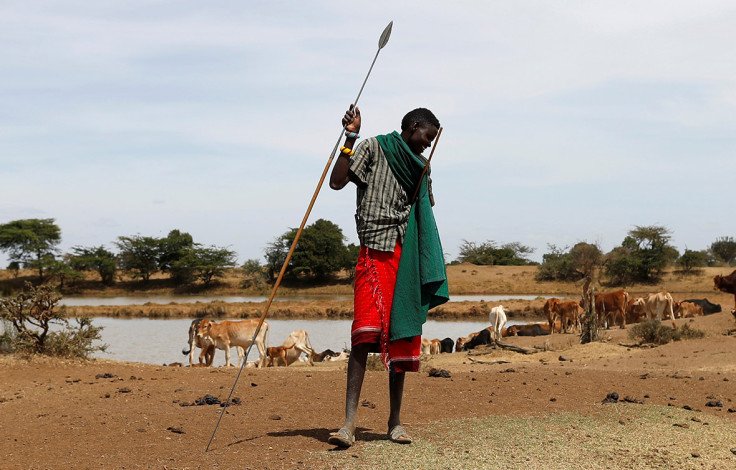Kenya: Hundreds forced to flee homes over rising insecurity in Baringo county
Two rival tribes, the Pokot and Tugen, are fighting for water and pasture in drought-ravaged Kenya.

Hundreds of people have been forced to flee their homes due to increasing insecurity in Kenya's Baringo county, about 217km (135 miles) northwest of the capital, Nairobi in recent days.
The battle for water and pasture in drought-ravaged Kenya has spilled over into violence between armed cattle herders from two rival tribes, the Pokot and Tugen, with people and wildlife killed. Earlier this month, Kenya declared the current drought affecting 23 of the country's 47 counties a natural disaster, with some 2.7 million people in Kenya affected by the drought facing food insecurity.
On Thursday (23 February), armed men attacked a government truck transporting relief food to the Baringo county. This incident comes two weeks after two men – a local elected official and a budding MP – were killed when gunmen attacked a bar, according to BBC.
Local leaders have asked President Uhuru Kenyatta to address the attacks which, they claim, have so far left 10 dead. "Hundreds" of police officers from the country's elite General Service Unit were deployed to the region on 8 February, Star Newspaper reported.
Baringo County Senator Gideon Moi, along with a delegation from the local government, last week met Interior Cabinet Secretary Joseph ole Nkaissery "over security situation in Baringo", according to Moi's KANU political party.
Baringo County Government, meanwhile, said it is responding to the "biting drought" by providing "relief food, providing water using water boozers and livestock off take programme in order to cushion farmers against further loses".
The government has continued to respond to the biting drought effects through provision of relief food, providing... https://t.co/eF4g8eWS3B
— Baringo County Govt. (@Baringo_county) February 14, 2017
Kenya's most important wildlife conservancies and private farms have also been facing "armed incursions" by armed herders in the neighbouring Laikipia county as the pastorialists search for food and water for their livestock.
The UK Foreign Commonwealth Office on 1 February said the growing land dispute posed a risk to tourists, and warned against travel to northern Laikipia. However, Laikipia remains outside the orange "all but essential travel" zone.
© Copyright IBTimes 2025. All rights reserved.






















